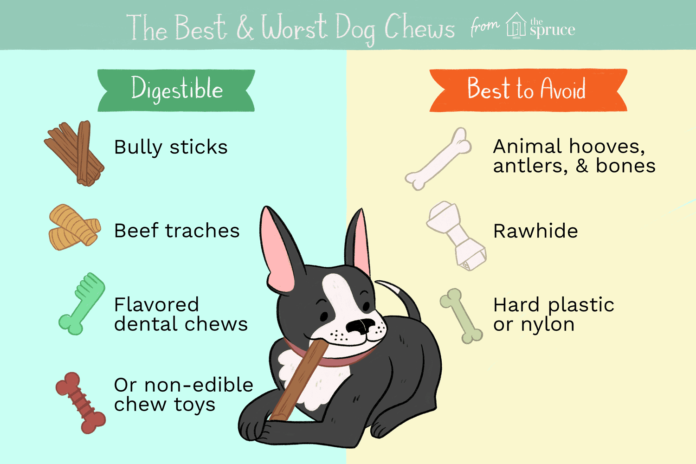If you’re wondering whether nylon chews are good for dogs, the short answer is: they can be risky. While these durable toys might seem like a perfect solution for aggressive chewers, there are important safety considerations every pet parent should know about.
Understanding Nylon Dog Chews
Nylon chew toys have become increasingly popular among dog owners due to their durability and affordability. However, as highlighted by experts at Pet like boss, not all durable toys are necessarily safe for our furry friends.
The Risks of Nylon Chews
1. Dental Damage
- Excessive hardness can crack or break teeth
- Risk of worn-down enamel
- Potential for painful dental injuries
- Expensive veterinary treatments
2. Choking Hazards
- Small pieces can break off
- Risk of intestinal blockage
- Difficulty digesting nylon fragments
- Emergency surgery might be required
3. Chemical Concerns
- Some nylon toys contain harmful additives
- Potential toxicity risks
- Chemical leaching during chewing
- Long-term health implications
Safer Alternatives for Your Pup
Looking for better options? Check out these dog-approved alternatives that you can find in our comprehensive guide to dog toys:
-
Natural Rubber Toys
- More flexible and forgiving
- Better for dental health
- Environmentally friendly
-
Rope Toys
- Helps clean teeth
- Promotes healthy gums
- Easy to replace
-
Dental-specific Chews
- Designed for oral health
- Veterinarian-approved
- Made with digestible materials
Making the Right Choice
When selecting chew toys for your doggo consider these factors
- Your dog’s chewing style
- Age and size
- Dental health
- Previous chewing history
Signs Your Dog Needs a Different Chew Toy
Watch out for these red flags – Broken or worn teeth- Bleeding gums- Decreased interest in eating- Unusual chewing patterns
Expert Tips for Safe Chewing
-
Supervision is Key
- Always monitor your dog during chewing sessions
- Remove damaged toys immediately
- Check for signs of wear and tear
-
Size Matters
- Choose appropriately sized toys
- Avoid toys that can be swallowed whole
- Replace worn-out items promptly
-
Regular Inspections
- Check toys weekly
- Look for damage or wear
- Clean toys regularly
The Bottom Line: Are Nylon Chews Good for Dogs?
While nylon chews might seem like a convenient option, the risks often outweigh the benefits. Many veterinarians and pet experts recommend avoiding them due to potential dental damage and safety hazards. Instead, opt for safer alternatives that provide similar benefits without the risks.
Tips for Transitioning Away from Nylon Chews
-
Gradual Change
- Introduce new toys slowly
- Keep favorite alternatives available
- Praise positive interactions
-
Variety is Important
- Offer different textures
- Rotate toys regularly
- Find what works best
-
Positive Reinforcement
- Reward appropriate chewing
- Make new toys exciting
- Create positive associations
Common FAQs About Dog Chews
Q: How long should chew sessions last?
A: 15-30 minutes is typically sufficient. Always supervise!
Q: How often should I replace chew toys?
A: Check monthly, replace at first signs of damage.
Q: What’s the best time for chewing?
A: After exercise or during quiet time.
Making Informed Choices
Your dog’s safety should always come first. While no toy is completely indestructible, choosing appropriate alternatives to nylon chews can help ensure your pup’s health and happiness. Remember to:
- Research thoroughly
- Consult your vet
- Monitor chewing habits
- Replace toys when needed
Final Thoughts
Being a responsible pet parent means making informed decisions about your dog’s toys and accessories. While nylon chews might seem tempting, especially for aggressive chewers, the potential risks make them a less-than-ideal choice for most dogs.
Remember to always prioritize safety over convenience and durability. Your furry friend’s health and well-being are worth the extra effort in finding appropriate alternatives. Keep exploring different options until you find the perfect match for your pup’s chewing style and preferences.
Stay informed, stay safe, and keep your doggo happy with appropriate chew toys that won’t compromise their health. After all, a happy pup means a happy home!
Note: Always consult with your veterinarian before introducing new toys or chews to your dog’s routine, especially if they have existing dental issues or specific health concerns.












